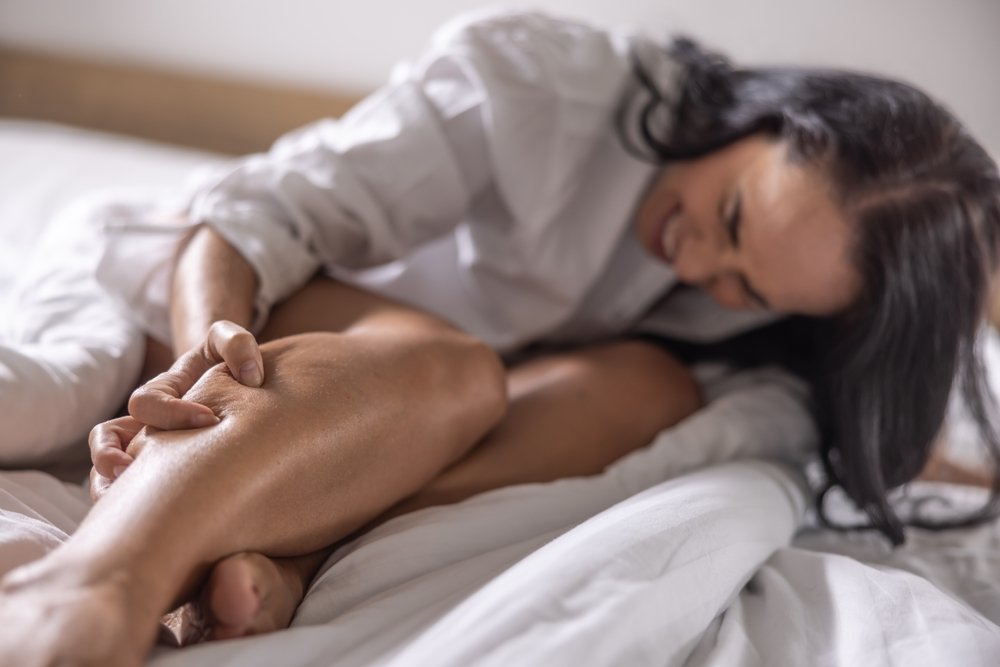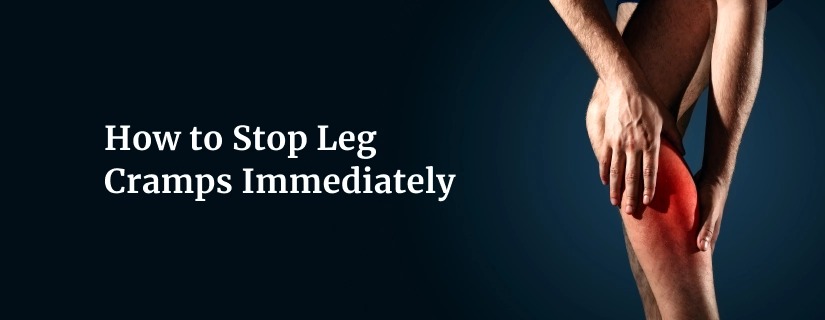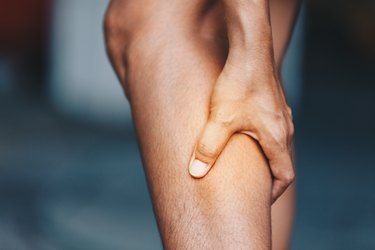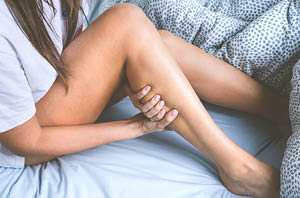Beinkrämpfe, besonders nachts, können Ihren Schlaf mit plötzlichen, stechenden Schmerzen stören. Während Beinkrämpfe häufig und in der Regel harmlos sind, können sie Ihre Schlafqualität und Ihr allgemeines Wohlbefinden beeinträchtigen. Hier sind 10 wirksame Mittel, die Ihnen helfen, nächtliche Beinkrämpfe zu verhindern und zu lindern.
Was sind Beinkrämpfe?

Beinkrämpfe sind unwillkürliche Muskelkontraktionen die plötzliche Verspannungen und Schmerzen verursachen, normalerweise in der Wade, im Fuß oder im Oberschenkel. Sie können von einigen Sekunden bis zu mehreren Minuten dauern. Nächtliche Beinkrämpfe oder nächtliche Beinkrämpfe sind Episoden, die auftreten, während Sie sich ausruhen oder schlafen. Diese können Sie aufwecken und Sie wund machen. Die meisten gemeldeten Fälle von Beinkrämpfen treten nachts auf.
Häufige Ursachen für nächtliche Beinkrämpfe
Mehrere Faktoren können zu nächtlichen Beinkrämpfen beitragen, darunter:
- Dehydration
- Electrolyte Imbalance (potassium, magnesium, calcium, and sodium deficiencies)
- Muscle Overuse or Fatigue
- Medications (like diuretics and statins)
- Pregnancy
- Medical Conditions (diabetes, kidney disease, thyroid issues)
- Age (older adults are more prone)
10 Heilmittel, um nächtliche Beinkrämpfe zu stoppen

- Stay Hydrated
- Dehydration is a common cause of muscle cramps. Ensure you’re drinking enough water throughout the day to stay hydrated. Avoid alcohol close to bedtime, as it dehydrates the body and may contribute to cramping by causing nutrient deficiencies and muscle tissue damage.
- Stretch Before Bed
- Gentle stretching, especially of the calf muscles, before bedtime can help prevent cramps. One effective stretch is the calf stretch against a wall: Stand facing the wall with your hands pressed against it, and step one leg back, keeping it straight, while bending the front knee and holding the stretch for 30 seconds. Repeat with the other leg.
- Stretch During a Cramp
- If a cramp strikes at night, stretching the affected muscle can provide relief. For calf cramps, sit and pull your toes toward your head, or try a forward lunge to stretch the cramped leg. Standing on your toes for a few seconds may also help.
- Apply Heat
- Heat helps relax tight muscles. Use a heating pad, warm towel, or hot water bottle on the affected area. A warm bath or shower before bed can also soothe muscles and reduce the chance of nighttime cramps.
- Massage the Muscle
- When a cramp occurs, gently massage the muscle with both hands to ease the tension. This can help loosen the muscle quickly and reduce pain.
- Magnesium Supplements
- Magnesium deficiency may be linked to muscle cramps. Consult your doctor before taking supplements, but if approved, magnesium could help prevent cramps. Magnesium plays a key role in muscle contraction and nerve function.
- Eat Potassium-Rich Foods
- Ensure your diet includes enough potassium, as low potassium levels can contribute to cramps. Foods rich in potassium include bananas, oranges, and potatoes.
- Use Proper Bedding
- Tight-fitting sheets or blankets can restrict movement and contribute to cramps. Sleep under loose bedding to avoid compressing the muscles or nerves in your legs.
- Walk or Shake the Leg
- Walking or moving your leg when cramps occur can increase blood flow to the muscles and ease the cramp. Walking helps open up small arteries in the legs, which improves circulation.
- Avoid Prolonged Sitting or Standing
- Sitting or standing in one position for extended periods can increase the risk of cramps. Try to move regularly throughout the day to keep blood circulating and avoid muscle strain or tension.
Abschließende Gedanken

Nächtliche Beinkrämpfe können schmerzhaft und störend sein, aber indem Sie hydratisiert bleiben, sich ausgewogen ernähren, sich regelmäßig dehnen und diese einfachen Mittel befolgen, können Sie die Häufigkeit und Intensität von Beinkrämpfen reduzieren. Wenn die Beinkrämpfe anhalten, konsultieren Sie einen Arzt, um zugrunde liegende Erkrankungen auszuschließen.


